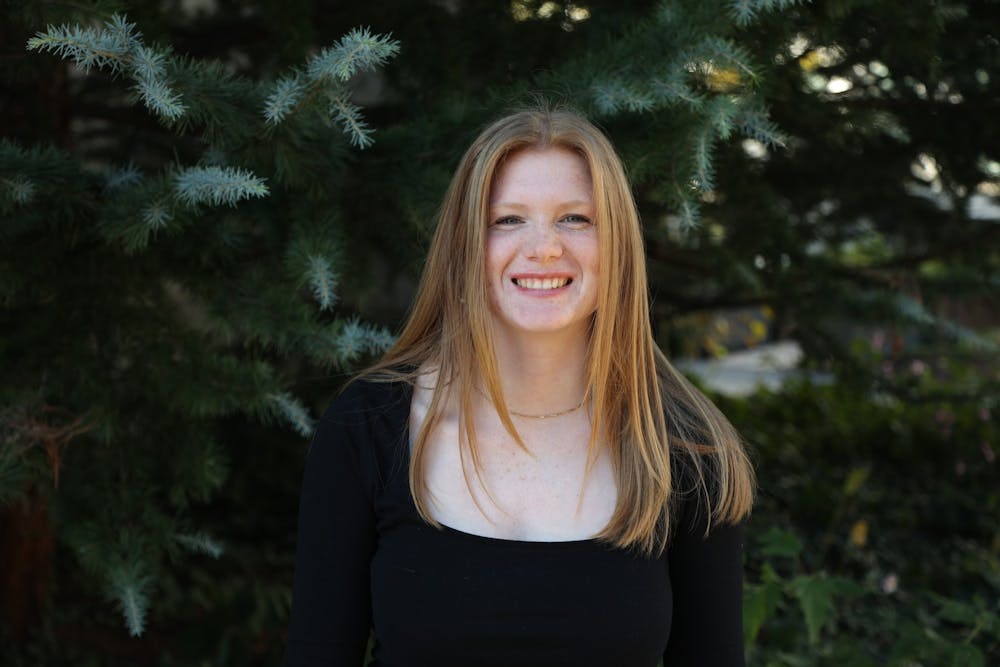D.C. is a hub of possibilities, and colleges in the area pride themselves on students taking full advantage of it. Georgetown University highlights, “Our location in D.C. opens the door for students to intern,” and George Washington University uses words like “your dream internship” when describing the ease at which a student can find an internship in the heart of the capital. American University similarly states that, “One of the greatest advantages to studying in Washington, D.C. is the unparalleled access that you have to internships.” Our shuttle stops, like the one in front of Kogod, tote the high percentage of students who have partaken in an internship.
These opportunities are a special aspect of going to college in D.C. which influence prospective students’ choices on where to attend college. Colleges in the district understand this influence and use it to promote themselves. Students are attracted to this, and rightfully so, because it can jumpstart their future careers. However, there is a culture fostered by these promotions that infects the minds of students, wreaking havoc on their mental health.
Toxic internship culture grows from impossible expectations and seeps into students’ minds until aspirations start to look inadequate. Hustle culture “centers around the idea that working long hours and sacrificing self-care are required in order to succeed,” according to a blog post on BetterUp, a professional training and coaching organization. “The promise is that if you give work all of your attention, you can achieve anything and everything.” Toxic internship culture functions the same way; if students collect and complete as many internships as they can, then they can achieve anything and everything. Unfortunately, also like hustle culture, this comes at the expense of a student’s self-care and leads to constant negative feelings about oneself.
Although not every student experiences it in the same way, there is a pervasive internship culture that exists on campus. The pressure that students put on themselves maintains this culture, but this pressure comes from somewhere, and that somewhere starts from the top.
The American University alumni Twitter page tweeted about AU alumna Charly Arnolt, highlighting, “At @AmericanU, more than 9/10 undergrad students complete an internship before earning their degrees. @AU_SOC alumna @CharlyOnTV held seven.” The tweet follows with a link to an article written about the accomplished alum. The article, “The Multimedia Success of the Multifaceted Charly Arnolt,” shows a clear promotion to live by the hustle culture, explaining that Arnolt “took this grind to the next level—labeling herself a ‘professional intern.’ Graduating with seven internships and a ‘stacked’ resume” shows the grind students take on, but not the danger that comes with it.
Soon after the post, other AU alumni took to Twitter to address the tweet’s implications. Many responded by reassuring students that they do not need seven internships to succeed post-graduation. Hearing from alumni made me feel validated in my frustration in posts like these. While this post and others like it do not intend to make students feel less than in their college journey, the impact on students do leave this lingering impression.
There is nothing inherently wrong with completing multiple internships over the course of college, but the pervasive pressure and constant feelings of inadequacy for not being able to have that many internships is unacceptable. There is no one-size-fits-all approach to a person’s success. It is fantastic for the University to recognize the accomplishments of its alumni, but it is equally important to share messages of support and encouragement for students who may not share the same experiences during their time at AU.
Students themselves should also take external and internal stands against this thinking. It is easy for me to tell the University that this pressure is harmful to students, but it is harder for me to break down this mode of thinking in my mind. I struggled with this belief system when I started at AU because all around me, peers and the University itself told me that this is how I should be working, and if I was not, something was wrong with me. It has taken me time to heal my thoughts, and I do not expect students to never think like this, but the healing process is necessary for the health of the campus culture and the health of our minds.
Mental health takes a toll when participating in the hustle, and mental health takes a toll when being excluded from the hustle. I hope that AU continues to uplift students, but to do so in varying ways. Just as other alumni pointed out, there are multiple ways to reach success, and it is imperative that AU takes this into account. I also hope that students can recognize when this culture pervades their thoughts and take action against it. Alumni have shown that it is possible to reach any type of success without subscribing to this toxic internship culture. They have also shown how former students and current students can support each other and knock down a culture that constantly makes us feel less than while we are doing what’s best for us.
Anna Gephart is a junior in the School of Public Affairs and a columnist for The Eagle. This article was edited by Jelinda Montes, Alexis Bernstein and Nina Heller. Copy editing done by Isabelle Kravis, Luna Jinks, Natasha LaChac and Sarah Clayton.





